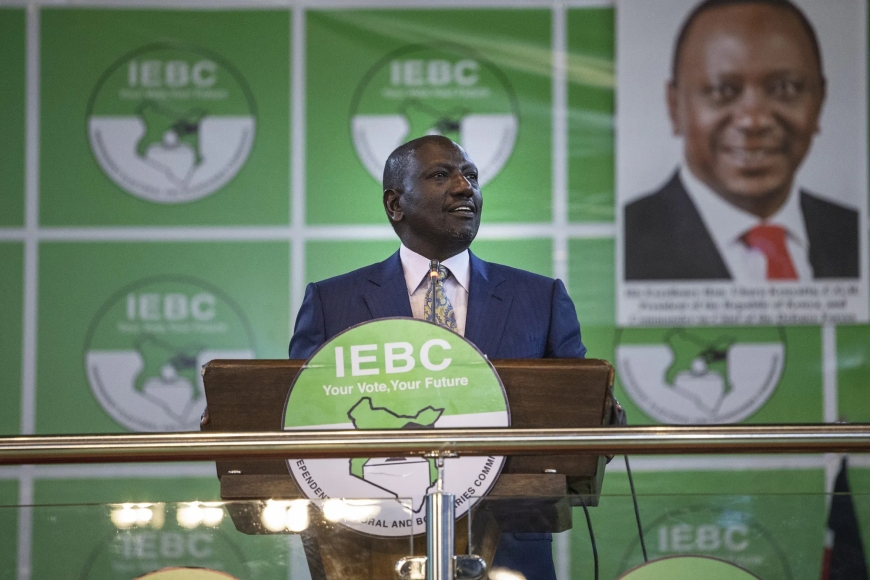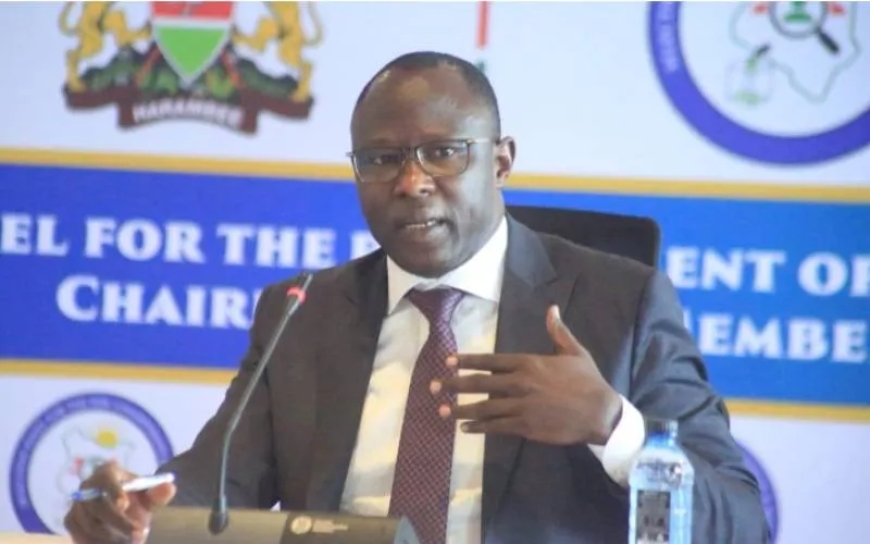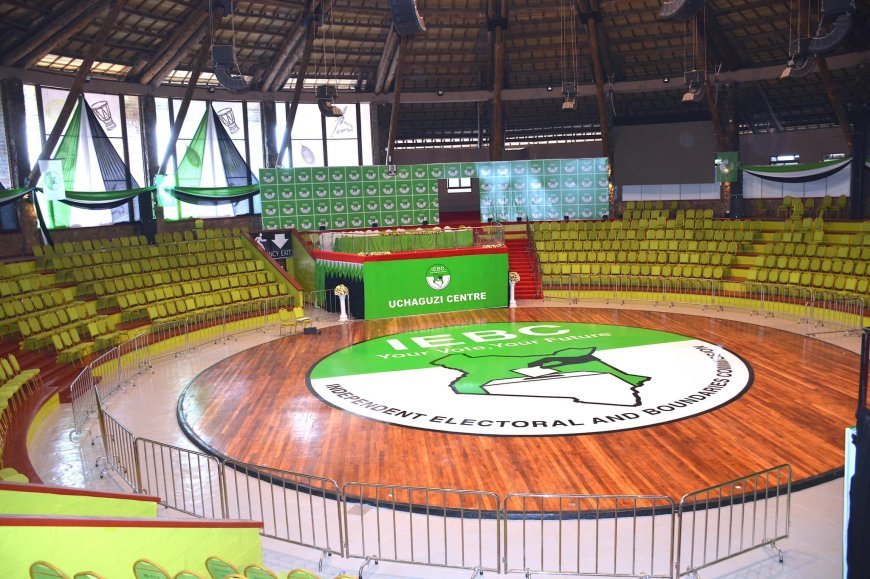Ruto Dealt First Blow On His IEBC Nominations
The High Court has issued conservatory orders halting the vetting and approval process of President Ruto's IEBC nominees by the National Assembly

President William Ruto has encountered his first big hurdle after the High Court temporarily halted the vetting of nominees for the Independent Electoral and Boundaries Commission (IEBC) on Monday, May 19.
The High Court has issued conservatory orders halting the vetting and approval process of President Ruto's IEBC nominees by the National Assembly, pending the outcome of a petition filed by two individuals.
According to the court's directive, the vetting cannot proceed until at least May 29. This marks the latest hurdle in efforts to establish a new electoral commission ahead of the 2027 general election, coming just two weeks after the petition was lodged on May 14.

IEBC Chairperson position nominee Erastus Edung Ethekon while facing the IEBC selection panel. /KBC DIGITAL
Earlier this month, President Ruto put forward Erastus Edung Ethekon as his pick for IEBC chair, alongside nominees Anne Nderitu, Moses Mukwana, Mary Karen Sorobit, Hassan Noor, Francis Odhiambo, and Fahima Abdalla for commissioner roles.
However, the nominations have faced legal scrutiny, with two citizens filing a petition to halt the process. They argue the appointments lacked adequate public participation, as recommended in the widely debated NADCO report.
The petitioners, affiliated with a civil society organisation, also alleged that some candidates included in the interview shortlist were added unconstitutionally and raised red flags over possible Executive interference in the selection process.
“That the nominations are not only illegal but also unconstitutional for failing the requirements of public appointments as espoused under Articles 10, 232 and 250(3) & (4) of the Constitution of Kenya, 2010, as read with the Independent Electoral and Boundaries Commission Act and the Public Appointments (Parliamentary Approval) Act, Chapter 7F, Laws of Kenya,” the petition read in part.
Following Monday’s court ruling, two possible outcomes could unfold before May 29. If the petition remains unresolved by then, the court might choose to extend the conservatory orders.
On the flip side, if the court finds no strong basis to keep the process on hold, it could lift the orders, clearing the way for the National Assembly to move forward with vetting and approving the IEBC nominees.
Earlier this month, the Elections Observation Group (ELOG) called for the public release of the IEBC selection panel's report, which outlines the recommended appointees to the electoral commission.







